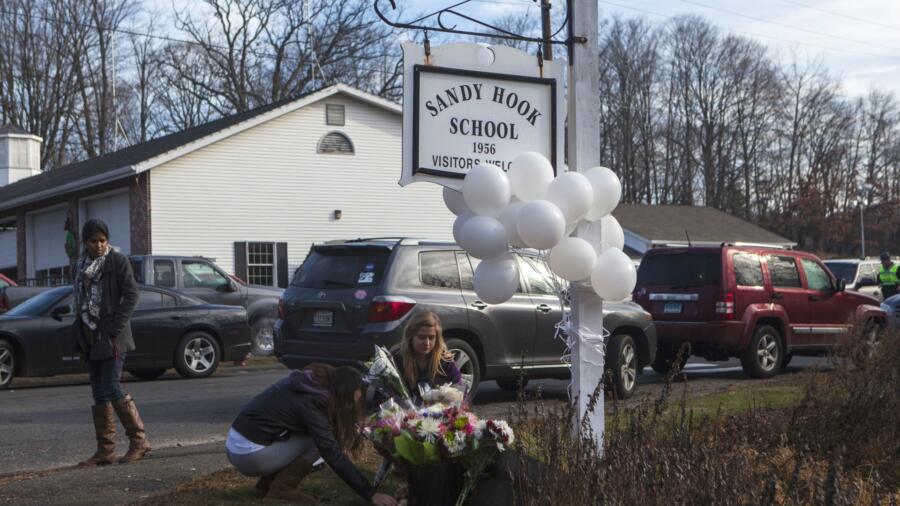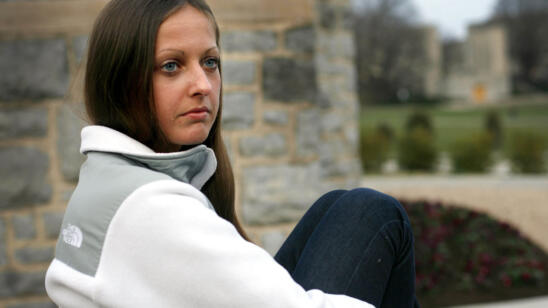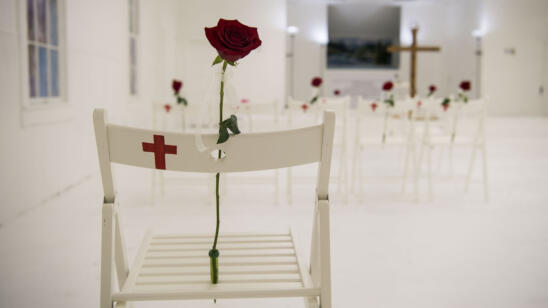In the aftermath of a school shooting—a crime that’s occurred, on average, once a week since 2013— we’re often left wondering why it happened and how to prevent more.
Dr. Peter Langman, Ph.D, has made it his life’s work to answer those questions. Langman, a clinical psychologist who has authored two books on school shootings, is considered one of the foremost experts in the psychology of school shooting perpetrators. Langman’s recommendations on preventing school shootings were presented to President Obama in the wake of the attacks at Sandy Hook Elementary.
A&E True Crime reached out to Dr. Langman to find out who commits school shootings, why they do it, and what to do to prevent the next one.
You’ve classified school shooters into three different psychological profiles: psychopathic, psychotic and traumatized. What’s the difference?
The psychopathic personality is characterized by extreme narcissism. That’s the central feature that helps explain other aspects of a psychopath. For example, they don’t have much concern for laws, rule, morality—those things get in their way. They know what the law is or what’s socially appropriate, but they don’t care and think it doesn’t apply to them. They tend to be very entitled and want what they want, when they want it. When they don’t get what they want, they tend to react with rage.
Psychotic refers to them being out of touch with reality, and that usually takes two forms. One is hallucinations, seeing and hearing things that aren’t there, or delusions, which are beliefs that are not real. Usually those beliefs are either grandiose delusions—they think they’re some exalted figure or Godlike being— or paranoid delusions, where they think people are out to get them and they’re being discriminated against.
Seung-Hui Cho, [the shooter] at Virginia Tech, wrote very vividly in his manifesto about being on the brink of annihilation. In reality, nobody was doing anything to him, but he compares himself to Jesus and Moses, and says he’s been metaphorically raped and crucified. So you’ve got grandiosity and paranoia there.
Have most school shooters experienced trauma in some way?
A lot of school shooters come from intact, middle-class families with working parents where there’s no evidence of abuse or domestic violence, such as [Columbine shooters] Eric Harris and Dylan Klebold.
[Shooters] who were traumatized grew up with domestic violence and sometimes physical and sexual abuse. They may have had drug- and alcohol-abusing parents, fragmentation in the family or chaos. Of the 48 perpetrators I’ve profiled, only 25 percent were traumatized. For middle-school or high-school shooters, the traumatized type was significantly more common than the other two. With college shooters, you don’t see traumatized shooters.
Why is that?
One possibility is that traumatized teens with that level of trauma don’t end up in college—either their lives are such a mess they couldn’t get into college, or their families don’t have the means to send them. It could be that if they’re going to explode into violence, they do it at a much younger age. They don’t even reach adulthood.
Your research showed that around half the school shooters had parents in the military and a similar number had family members employed as educators or administrators. What can we infer from this?
This is my hypothesis with the military: If you grow up in a family with the tradition of military service, that maybe forms your idea of manhood or masculinity. If a kid comes along who’s not a perfect physical specimen and he just doesn’t measure up, that can be a major blow to someone’s sense of self. If they wanted to enlist and were kicked out or rejected, that could be a profound blow to your identity, especially if your role model is your dad who served in the military.
What I look at is not simply whether the family’s in the military, but the shooter’s own sense of self, psychologically and socially. If you can’t hold a job, you can’t get a girlfriend and you’re rejected from the military, it could lead to such a rage that someone can become violent.
With [shooters whose parents were] educators, similarly, we’re talking about one’s sense of self. I’d say if one parent is a school teacher or a college professor and they have a kid who is a high school dropout, the pressure to succeed might be greater, the disappointments may be worse.
Kimveer Gill, who dropped out of college and whose father was a college professor, completed an attack at Dawson College, which he had never even attended. He may have been lashing out at the symbol of his own failure.
It seems like the majority of school shooters were either verbally or physically violent to women prior to the attacks. Why?
When you’re talking about extreme violence, like serial killings and mass shootings, the killers are typically all men. There are more female shooters than people tend to realize, but it’s still typically male.
Violence against women has been really common; either before the shootings or during the attack, women are frequent targets. We don’t know why. It could be that boys are socialized to repress emotion. Maybe it’s that they’re shown in television and video games that boys are supposed to be soldiers and kill people. Boys are provided with social scripts, so when they do get angry, they’ve been trained to react violently. Nobody really knows why, but it’s probably a combination of all of those things.
What’s the most surprising thing you’ve learned about school shooters in your research?
Probably just the extent to which bullying is not a factor. A misunderstanding is that bullying causes school shootings. I think that’s very inaccurate. Some of the shooters, when they do become violent, were never picked on in the first place—or the shooter was the bully, rather than the victim. When you look at who they target in the attacks, of the 48 perpetrators [in my book], only one had sought out a kid who had picked on him.
What’s something you want the general public to know about school shootings?
Just to understand the variety of shooters, the variety of attacks and that different types of people commit attacks for different reasons. Another big thing to know is that generally there are a lot of warning signs, and shootings can be prevented if people know the signs and take action.
Some kids have said ‘I’m going to bring a gun to school and shoot people,’ and nobody does anything because they don’t take it seriously, or because he’s young and nobody believes someone that young could be a killer. We call this ‘leakage,’ where they tell other people their intentions. It could be bragging or trying to recruit someone to join them in the attacks, or warning friends to stay away because they only want to kill certain people. Often the way attacks are stopped are because someone pays attention and reports it.
“School Shooters: Understanding High School, College, and Adult Perpetrators,” by Peter Langman is available at retailers.


